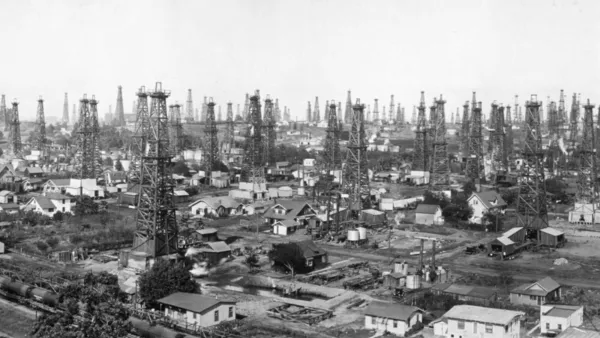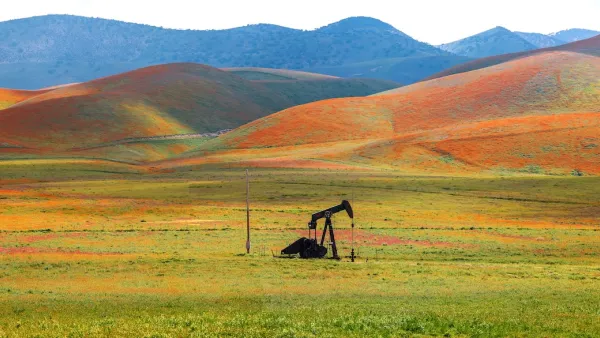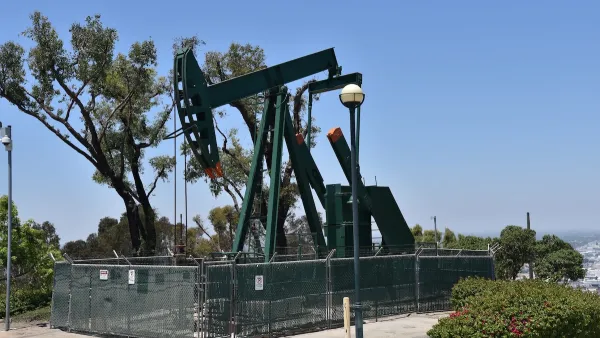California's oil industry has withdrawn its ballot measure challenging a law that restricts oil and gas wells near homes and schools, opting to contest the law in court.

California’s oil industry has withdrawn its controversial ballot measure that aimed to challenge a state law banning new oil and gas wells within 3,200 feet of homes and schools, opting instead to fight the legislation in court. As reported by Julie Cart, this decision means that the protective measures outlined in Senate Bill 1137, signed by Governor Gavin Newsom, will go into effect, ensuring safety improvements for existing wells and prohibiting new drilling in sensitive areas. Environmentalists see this as a significant victory, while the oil industry argues that the law will lead to job losses, increased gas prices, and greater reliance on imported oil.
Authored by Senator Lena Gonzalez, the law mandates that operators of existing wells near homes and schools develop safety plans by 2025 and implement them by 2027. The California Independent Petroleum Association, represented by Jonathan Gregory, stated that while public claims against the referendum could be made without evidence, the courts would require substantiated proof, hence the shift from a referendum to a legal strategy. Governor Newsom praised the withdrawal as a win for public health and safety, emphasizing the importance of keeping drilling operations away from vulnerable communities and populations.
Environmental health risks from oil operations have been a longstanding concern, particularly for the 2.5 million Californians living within 3,200 feet of wells, many of whom are from low-income and predominantly communities of color. The harmful effects include respiratory issues, heart disease, and higher cancer rates. Mabel Tsang of the California Environmental Justice Alliance highlighted the generational health impacts suffered by these communities, reinforcing the necessity of the new regulations.
Despite this victory, the oil industry continues to oppose various legislative efforts aimed at regulating and cleaning up abandoned wells. Assemblymember Isaac Bryan, who helped negotiate the withdrawal, remains critical of the industry's legal challenges and committed to advancing related bills. Environmental activists, undeterred by the industry's tactics, vow to persist in their efforts to protect public health and the environment.
FULL STORY: Controversial measure overturning oil well restrictions won’t be on California ballot

Analysis: Cybertruck Fatality Rate Far Exceeds That of Ford Pinto
The Tesla Cybertruck was recalled seven times last year.

National Parks Layoffs Will Cause Communities to Lose Billions
Thousands of essential park workers were laid off this week, just before the busy spring break season.

Retro-silient?: America’s First “Eco-burb,” The Woodlands Turns 50
A master-planned community north of Houston offers lessons on green infrastructure and resilient design, but falls short of its founder’s lofty affordability and walkability goals.

Test News Post 1
This is a summary

Analysis: Cybertruck Fatality Rate Far Exceeds That of Ford Pinto
The Tesla Cybertruck was recalled seven times last year.

Test News Headline 46
Test for the image on the front page.
Urban Design for Planners 1: Software Tools
This six-course series explores essential urban design concepts using open source software and equips planners with the tools they need to participate fully in the urban design process.
Planning for Universal Design
Learn the tools for implementing Universal Design in planning regulations.
EMC Planning Group, Inc.
Planetizen
Planetizen
Mpact (formerly Rail~Volution)
Great Falls Development Authority, Inc.
HUDs Office of Policy Development and Research
NYU Wagner Graduate School of Public Service




























